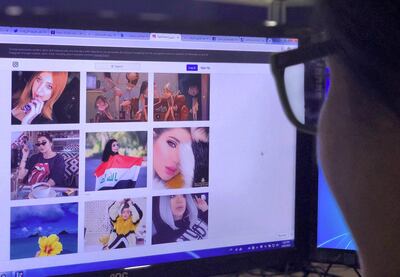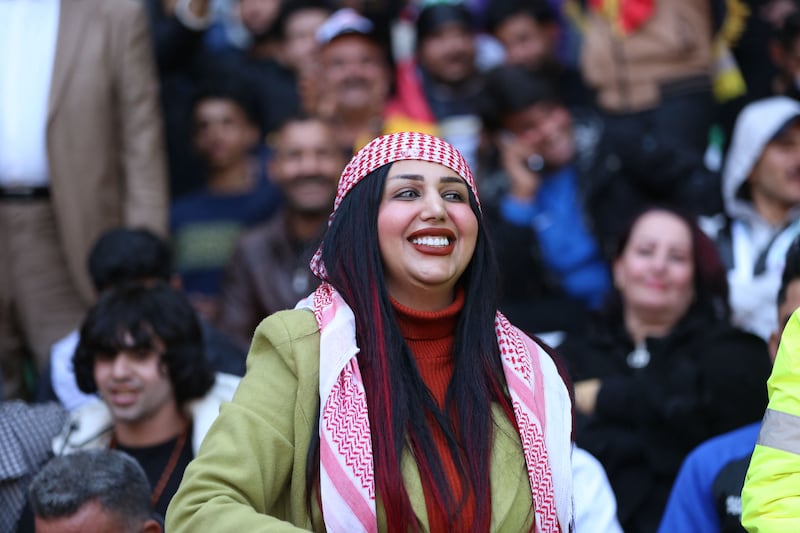In many ways Iraq has worked hard to put behind the divisions of the difficult decades that followed the 2003 US-led invasion. Although many challenges remain, there are reasons for optimism.
In March, the International Monetary Fund said growth in Iraq’s non-oil sector rebounded strongly last year while inflation receded – two positive developments that were supported by the normalisation of trade finance and the stabilisation of the country’s foreign exchange market. Such improvements should mean a better, more stable life for Iraq’s citizens. But in some other areas of Iraqi life, some – particularly young women – instead face unacceptable levels of violence and intimidation.
The fatal shooting of a TikTok influencer in Baghdad on Friday night is one such example. Om Fahad, whose real name was Ghufran Sawadi, died after being shot by an unidentified assailant in the city’s Zayouna neighbourhood. Her murder is the latest in a string of deadly attacks on young people with high social media profiles. Such killings are often fuelled by a toxic mix of violence, impunity and misogyny.

In February last year, a prominent Iraqi YouTuber called Tiba Al Ali was murdered by her father. In September 2023, another popular TikTok personality – a 23-year-old known online as Noor BM – was shot dead in Baghdad and in 2018, a 22-year-old social media star and fashionista named Tara Fares was also murdered by gunmen in the capital. Other killings have not been reported as they have been of people without a media following.
These killings lend credence to many NGOs and women’s rights groups in Iraq that have been demanding that the authorities take stronger action against the hate and violence directed at women, especially those with a significant online presence. This misogyny is a significant problem; in November last year, the International Organisation for Migration reported that nearly a million women and girls in Iraq were at risk of some form of gender-based violence.
The atmosphere for social media stars in Iraq can be a febrile one, to say the least, and the authorities are particularly watchful for online content considered objectionable. In February last year, for example, a court sentenced Om Fahad to six months in prison for sharing “videos containing indecent speech that undermines modesty and public morality”.
What is important in these cases is that justice be done, thereby deterring those inclined to vigilantism. Iraqi law enforcement must do everything it can to catch and prosecute such killers, particularly because many enthusiastic young social media users are potentially putting themselves in harm’s way. According to figures released by Iraq’s Digital Media Centre in February, the country has almost 32 million TikTok users, a significant increase on last year’s total of 23.8 million. Considering that Iraq has a total population of 44.5 million people, we can see how ubiquitous social media use has become.
With that level of penetration, it is inevitable that someone’s online postings will offend or antagonise, and social media companies have an obligation to advise their users on how to post safely in country-specific contexts. Similarly, influencers must also exercise responsibility and discretion when posting. Nevertheless, while upholding standards is important, no one should face violence for a social media post, and no one has the right to take the law into their own hands.





